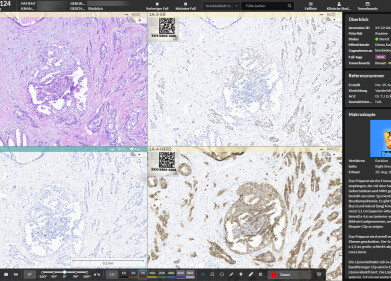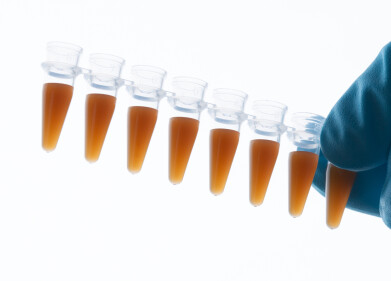Laboratory Products
Why Do I Have a Sweet Tooth?
May 15 2017
Ever found yourself craving a sugary drink? Maybe you have a weakness for cake, or simply can’t resist ending every meal with dessert. Turns out, you might have better self-control than you think. According to experts, your liver could be to blame.
In a recent study, researchers found that after consuming sugar the liver excretes a hormone called FGF21. While most people experience this side effect, people with particular variants of the FGF21 gene were 20% more likely to crave sugar.
The study was published in Cell Metabolism, and released by a team of scientists from the University of Copenhagen. Working from the Novo Nordisk Foundation Center for Basic Metabolic Research, they used data sourced from a study called Inter99. Drawing on 6,500 Danish individuals, it explored diet, metabolism and lifestyle influences, as well as bloodstream cholesterol and glucose levels. They then focussed on two variants of the gene that were associated with high carbohydrate intake. Interestingly, individuals with either of the two variants were more likely to report higher sugar intake. "These variants are very solidly associated with sweet intake," comments Gillum.
Supressing the sweet tooth
Not only did the study offer a glimpse at what spurs sugar cravings, but it also raised new ideas about the role of the liver in controlling diets. In a study conducted on rodents, scientists found that FGF21 plays an important role in regulating sugar intake. The findings paralleled another study, which suggested that the same hormone supresses the sweet tooth in primates.
"We went into this study with an open question about whether this would be a rodent-specific feature of FGF21 or something we can actually see in people," explains Matthew Gillum, an assistant professor of biological sciences, and lead author of the study.
The laws of the liver
As well as keeping sugar intake in check, Gillum and his colleagues speculate that the liver could release other hormones that guide food choices in a broader context. "How do we decide what and how much to eat?” asks Gillium. “Maybe satiety consists of different pathways that control different types of nutrients. This study has opened my mind to how this regulatory system might work."
With plans to carry out a larger human study currently in the works, we could soon know much more about the dynamics of the liver, and the impact of FGF21.
Animal trials often play a critical role in modern science, but some experts maintain that the practice is unnecessary. For a closer look at the movement, ‘Human Models for Human Disease: The Animal Replacement Centre of Excellence’ offers unique insight from the Dr Hadwen Trust (DHT), a British charity dedicated to the promotion and funding of animal-replacement research activities.
Digital Edition
International Labmate 49.6 - Sept 2024
September 2024
Chromatography Articles - HPLC gradient validation using non-invasive flowmeters Mass Spectrometry & Spectroscopy Articles - From R&D to QC, making NMR accessible for everyone: Putting NMR...
View all digital editions
Events
Oct 15 2024 Milan, Italy
Oct 17 2024 Dhaka, Bangladesh
Oct 20 2024 Fort Worth, TX, USA
Oct 21 2024 Dalian, China
Oct 30 2024 Birmingham, UK









.jpg)








